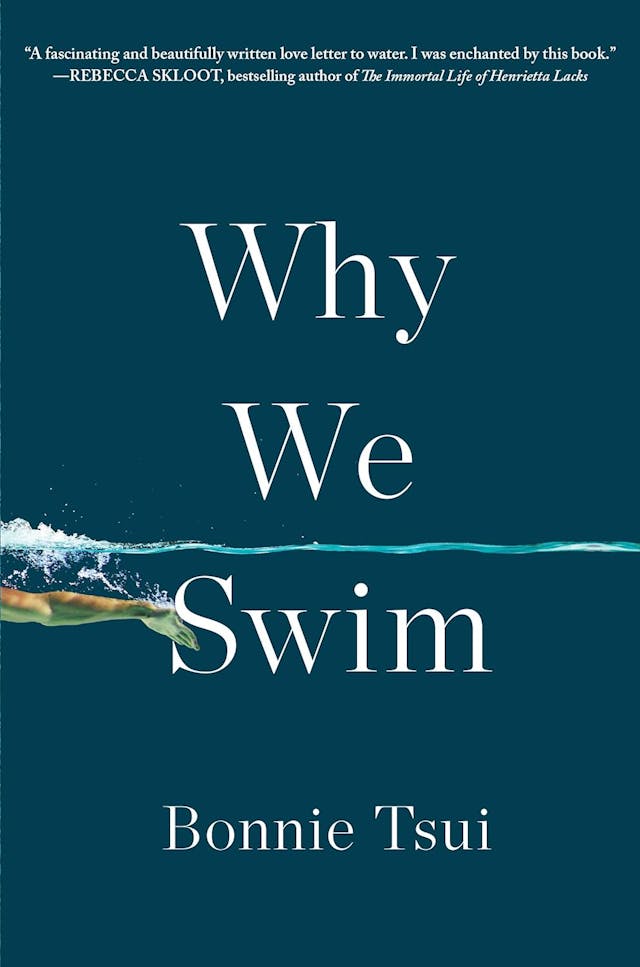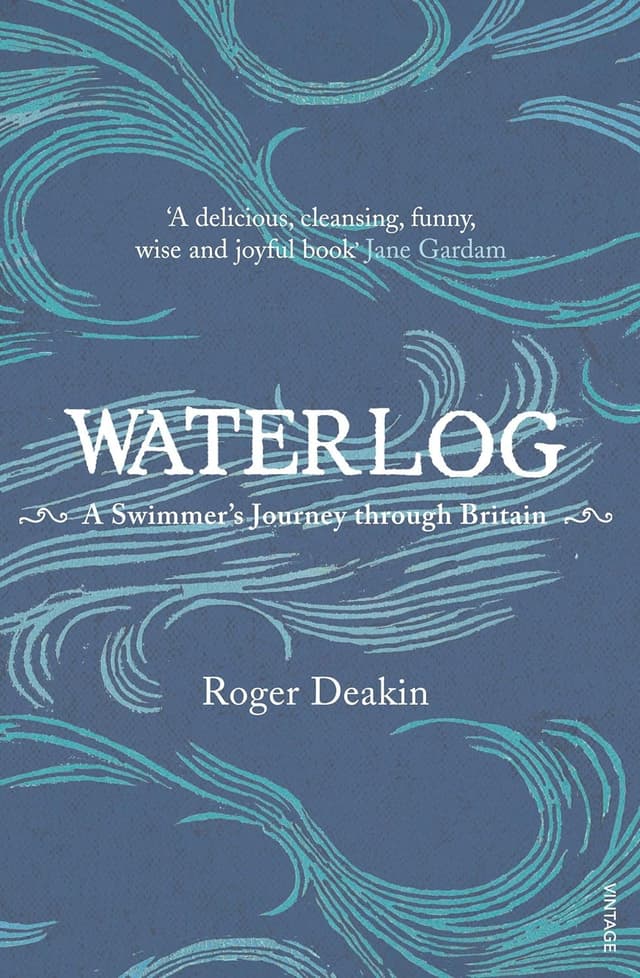Joseph Dana | September 22, 2020
Why is this interesting? - The Cold Water Swimming Edition
On endurance, Cape Town, and frigid waters
Recommended Products

Bonnie Tsai wrote an entire book on the joy of swimming with a special attention to the attraction of cold ocean water.

Roger Deaton’s classic book on a year swimming through Britain.
Joseph Dana (JD) is a longstanding friend of WITI and a South Africa based writer. He formerly edited the opinion pages at The National in Abu Dhabi and served as Monocle's Eastern Mediterranean correspondent and Istanbul bureau chief. Sign up for his newsletter: “Notes from a Fractured Country.”
Joseph here. Year after year, endurance events continue to gain popularity. For a subset of humans, the search to find and push beyond perceived limits is an exhilarating draw. That’s obviously matched with the physical benefits of exercise. But for me, it’s the mental benefits that are particularly pronounced. Whether it’s running ultramarathons like South Africa’s iconic Comrades Marathon, climbing Yosemite’s El Capitan, or surfing some of the best waves around the world, finding that edge makes me feel alive and, ironically, in control. It was a running joke that climbing big walls was good training for working as a journalist in the Middle East, especially during the Arab Spring. But nothing I’ve done thus far has challenged my sense of endurance more than cold water swimming.
The reason (and its appeal) is simple: it doesn't get easier. No matter how hard you train or how much time you spend in the sea, the water doesn’t get warmer. You might be able to deal with it mentally but your body’s natural response to the cold (read: various stages of hyperthermia) doesn’t change. Ultramarathon running is different in this regard. The more you train, the easier and shorter runs feel. When you start out, running a 5km can feel like a march to collapse. A year later, you can run 5km without breaking a sweat.
Why is this interesting?
Cold water swimming might not be everyone’s idea of a good, but many are finding the open ocean a perfect escape from the constant noise and distraction of life. For this reason, cold water swimming is undergoing its own popularity spike. The sheer amount of writing about the sport this year (the good stuff is linked below) indicates a broad interest. In her latest book, world-renowned open-water swimmer Lynne Cox notes that the sport of open water swimming is exploding as running did in the 1970s in the United States and Britain.
There are more than nine hundred competitive open water swims across the United States. There is also a booming business in swim travel, in which swimmers fly to places like Greece, Turkey, and the Caribbean to participate in open water camps and swim along the shore, between islands, and across straits. Cold water swimming is like going from marathons to ultramarathons for die-hard open water swimmers. The extra mental challenge is deeply appealing.
What separates the mental challenge of cold water swimming from other endurance sports is that the hard part begins from the moment you enter the water. When you run a marathon, the difficult patches tend to crop up later in the race. You ease into them. With cold water, there is no easing. The cold hits you like a ton of bricks and even if you begin to warm up a bit, the cold finds a way to seep in.

I have a variety of ocean swimming spots within a short drive from my home in Cape Town. Most ocean swims take place in the icy Atlantic, where water temperatures range from 10 to 15 degrees Celsius (50-59 degrees Fahrenheit) depending on the season and whether the prevailing winds are bringing with them cold antarctic currents. Ocean swimming is a fairly popular sport in Cape Town thanks to iconic swims like the Robben Island crossing and the swim around the Cape of Good Hope.
After years of putting it off, I’m aiming for my first Robben Island crossing in October. Every training session for the 7.5km (4.6-mile) crossing involves a progressively longer stay in the frigid water. No matter how much you train, however, the water never gets warmer. After longer swims (generally over an hour), my body goes into a mildly hypothermic state. It can take a hot shower, copious amounts of tea, and a couple of hours to shake the “after drop” and feel normal again.
The inevitably of that post-swim feeling is one of the hardest mental challenges, but I haven’t faced it alone. Most cold-water swimmers swim in groups. This is especially true for challenging training swims in the open ocean. If you encounter a problem at sea in frigid water, it’s not like you can have a rest and sort out a game plan. As soon as you break your stroke and begin treading water, the cold begins gnawing at you.
During a longer swim like a Robben Island crossing, athletes are accompanied by a crew and safety boat as well as experienced swimmers who can identify the effects of serious hypothermia. Boats are also equipped with electronic shark deterrents, a necessary precaution given Cape Town’s lively, but at-risk, shark scene. Few other sports offer participants the opportunity to be part of the food chain.
The science behind cold water immersion and its health benefits remains patchy, but since I began training, the effects have been incredible. My mood is elevated much more than during my running days and I feel calmer in general. It’s as if the shock of the water dissolves anxiety. Yet the training doesn’t get easier. The sense of calm cold water facilitates is unlike anything on the endurance market. Being in the middle of the ocean in nothing but a Speedo is a pure and wild experience. (JD)
Swim of the day:
For those interested in going deeper, here’s a Youtube video that documents the Robben Island to Cape Town Swim. (CJN)

Quick Links:
There’s been a small boom in writing about cold water swimming in 2020. Rebecca Mead captured the scene in Britain with an incredible eye for the New Yorker. (JD)
Bonnie Tsai wrote an entire book on the joy of swimming with special attention to the attraction of cold ocean water. No list about wild swimming would be complete with mention of Roger Deaton’s classic book on a year swimming through Britain, Waterlog (JD)
Secret features in iOS14 (CJN)
Noah (NRB) & Colin (CJN) & Joseph (JD)
PS - Noah here. Variance, my new company, is looking for sales, marketing, and service teams who have recently gone remote and want to try out our new product to help drive team alignment and tool adoption. If that sounds like you, please request an invite on the site. Thanks.
—
Why is this interesting? is a daily email from Noah Brier & Colin Nagy (and friends!) about interesting things. If you’ve enjoyed this edition, please consider forwarding it to a friend. If you’re reading it for the first time, consider subscribing (it’s free!).